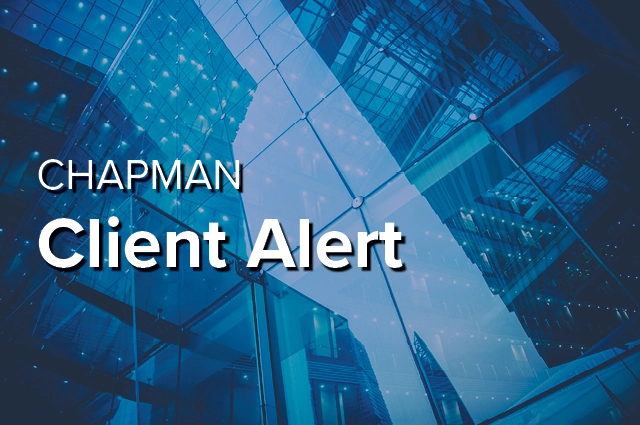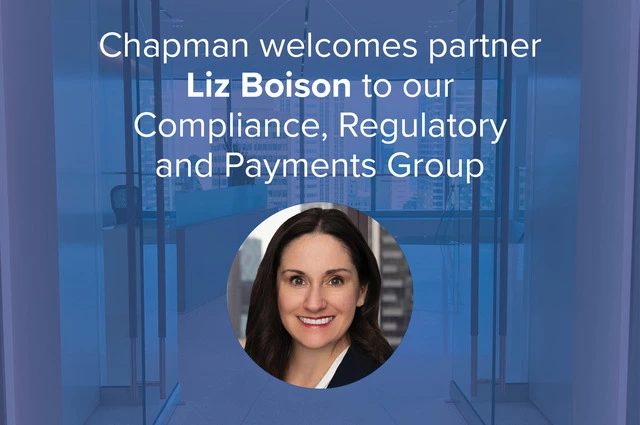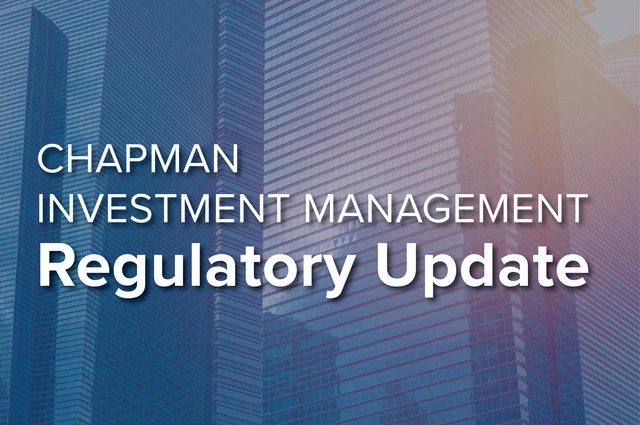- Topic: Department of Labor
27 matches.
On April 23, 2024, the Department of Labor (“DOL”) released its final investment advice fiduciary rule, titled the Retirement Security Rule (the “Final Rule”), which re-defines who is a fiduciary on account of providing investment advice to workplace retirement plans and individual retirement accounts (“IRAs”). In addition, the DOL released several amended DOL prohibited transaction exemptions that, together with the Final Rule, are “intended to protect the interests of retirement investors by requiring persons who are defined in the Final Rule as investment advice fiduciaries to adhere to stringent conduct standards and mitigate their conflicts of interest.” The Final Rule and the amended exemptions finalize the proposed investment advice fiduciary rule and proposed amendments to the prohibited transaction exemptions, which the DOL issued on October 31, 2023. The Final Rule narrows certain provisions in the proposed rule that some commentators and industry groups argued were overly broad. The Final Rule and the amended prohibited transaction exemptions will become effective on September 23, 2024, except that certain provisions in the amended exemptions will not be phased in until one year after such effective date.
- LexisNexis Practical Guidance
On April 13, the Department of Labor released guidance on the prohibited transaction exemption pertaining to fiduciary investment advice for retirement investors, employee benefit plans and investment advice providers.
On April 14, the U.S. Department of Labor announced guidance for plan sponsors, plan fiduciaries, record keepers, and plan participants on best practices for maintaining cybersecurity, including tips on how to protect the retirement benefits of participants.
The Department of Labor announced that it will not enforce its previously issued final rule regarding plan fiduciaries’ use of environmental, social and governance factors in selecting investments for tax‑qualified retirement plans.
On March 12, the Occupational Safety and Health Commission announced a National Emphasis Program for COVID-19. The NEP is in response to an Executive Order issued by President Biden directing the Secretary of Labor to launch a national program to focus OSHA enforcement efforts related to COVID-19 on industries with the largest numbers of workers at serious risk.
Environmental, Social and Governance investing in the United States has reportedly reached an estimated $250 billion in assets under management and is expected to see continued growth in 2021 and beyond.
On October 30, the Department of Labor issued a final rule which amends its 1979 investment duties regulation under the Employee Retirement Income Security Act of 1974, as amended, to update and clarify its position with respect to ERISA plan fiduciaries’ use of environmental, social and governance factors in selecting investments.
The Department of Labor proposed a new investment advice fiduciary rule, which generally reinstates the DOL’s longstanding investment advice fiduciary test and provides a new prohibited transaction exemption for such fiduciaries.
As Employers are facing unprecedented health and safety issues in connection with the COVID-19 pandemic and the rapidly changing nature of government mandates put in place to contain the spread of the virus, the United States Department of Labor, Occupational Safety and Health Administration has issued Guidance on Preparing Workplaces for COVID-19.
The Department of Labor published its proposal to delay for 18‑months the more onerous provisions of the exemptions that were issued in connection with the DOL’s fiduciary rule. The exemptions were supposed to be fully effective January 1, 2018. Instead, the DOL has proposed that they become fully effective July 1, 2019.
The Department of Labor recently issued another set of FAQs, focusing on advisors to 401(k) plans. The FAQs generally address two issues.
In a court filing on August 9, the Department of Labor notified the court that it recently submitted proposed amendments to the three exemptions to its fiduciary rule to the Office of Management and Budget.
Labor Secretary Alexander Acosta confirmed in an Op-Ed in the Wall Street Journal that the Department of Labor fiduciary rule will become applicable on June 9. Along with the Op-Ed, the DOL issued new Conflict of Interest FAQs related to the June 9, 2017 to January 1, 2018 transition period and Field Assistance Bulletin No. 2017-2.
Yesterday the Department of Labor released the final rule delaying the applicability of the DOL fiduciary rule and the related prohibited transaction exemptions to June 9, 2017. The rule was originally set to become applicable on April 10, 2017.
The Department of Labor announced a proposed 60-day delay of the applicability date of the DOL fiduciary rule and related exemptions. The DOL has allowed a 15-day comment period providing all interested parties an opportunity to comment on the proposed delay.
President Trump issued a memorandum directing the Department of Labor to conduct an analysis of the fiduciary rule’s potential impact. Depending on the results of its examination, the memorandum instructs the DOL to publish for notice and comment a proposed rule to rescind or revise the rule.
The Department of Labor released on January 13 two sets of frequently asked questions to provide additional guidance on its new fiduciary rule. One set of FAQs is directed at consumers to better help them understand the Rule. The other set of FAQs is directed at financial service providers to address the regulation defining “investment advice.”
The staff of the Securities and Exchange Commission’s Division of Investment Management has released guidance focused on disclosure issues and certain procedural requirements associated with mutual funds implementing intermediary‑specific variations to sales loads and adding new share classes.
On November 22, Judge Mazzant III issued a preliminary injunction halting the Department of Labor's impending overtime rule from going into effect nationwide. The rule would raise the salary basis threshold for “white collar” overtime exemptions from $455 per week ($23,660 annually) to $921 per week ($47,892 annually).
On October 27, the Department of Labor issued its first wave of FAQs to address certain questions that have arisen with respect to the DOL’s previously issued fiduciary rule. Generally, the Rule broadly defines who is a fiduciary under the Employee Retirement Income Security Act and the Internal Revenue Code.
On September 20, 2016, 21 states filed a suit to block the Department of Labor’s rule for “white collar” overtime exemptions from going into effect. The four‑count complaint pending in the Eastern District of Texas seeks a declaratory judgment that would prohibit the rule from going into effect, or at least prohibit the rule from applying to the states.
On May 18, 2016, the Department of Labor issued the final version of the its overtime rule, which officially raises the salary basis threshold for “white collar” overtime exemptions to $47,476 per year, or $913 per week, increasing the applicability of the Fair Labor Standards Act to an additional 4.2 million employees.
This alert addresses several frequently asked questions related to sales of unit investment trusts registered under the Investment Company Act of 1940 by those persons deemed fiduciaries under the U.S. Department of Labor's recently released fiduciary rule.
Today the U.S. Department of Labor released its highly anticipated final rule to define the term “fiduciary” and address conflicts of interest in providing investment advice to retirement accounts.
In a move that has been anticipated for months, on March 15, 2016, the Department of Labor took one of the final steps toward making its new overtime rules a reality.
On June 30, 2015, the Wage and Hour Division of the Department of Labor released a Notice of Proposed Rulemaking that overhauls the Fair Labor Standards Act’s overtime regulations.
- Client Alert
As providers of utility service to federal government offices, most investor owned utility companies are “federal contractors” subject to the Equal Opportunity rules established and enforced by the U.S. Department of Labor’s Office of Federal Contract Compliance Programs.









